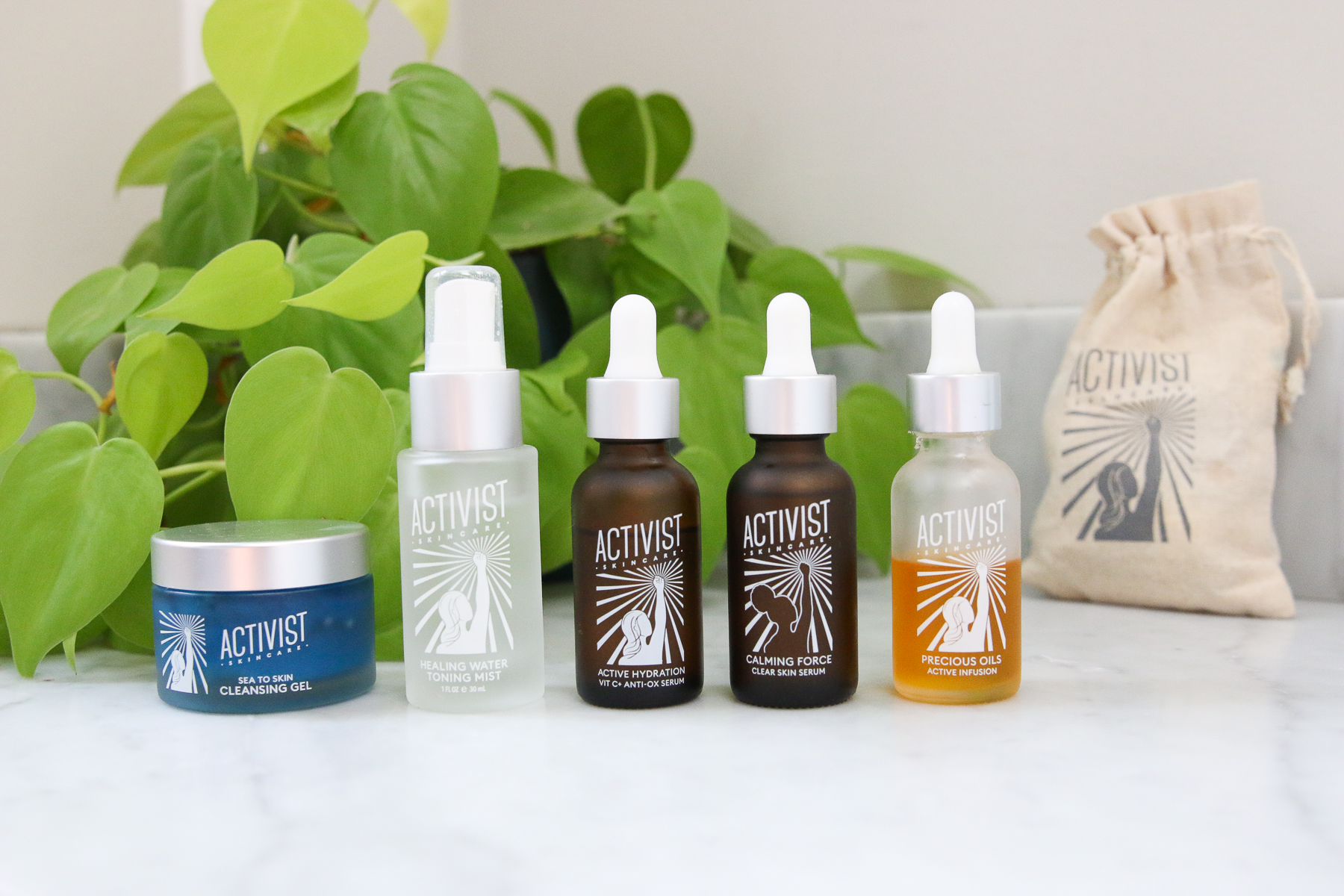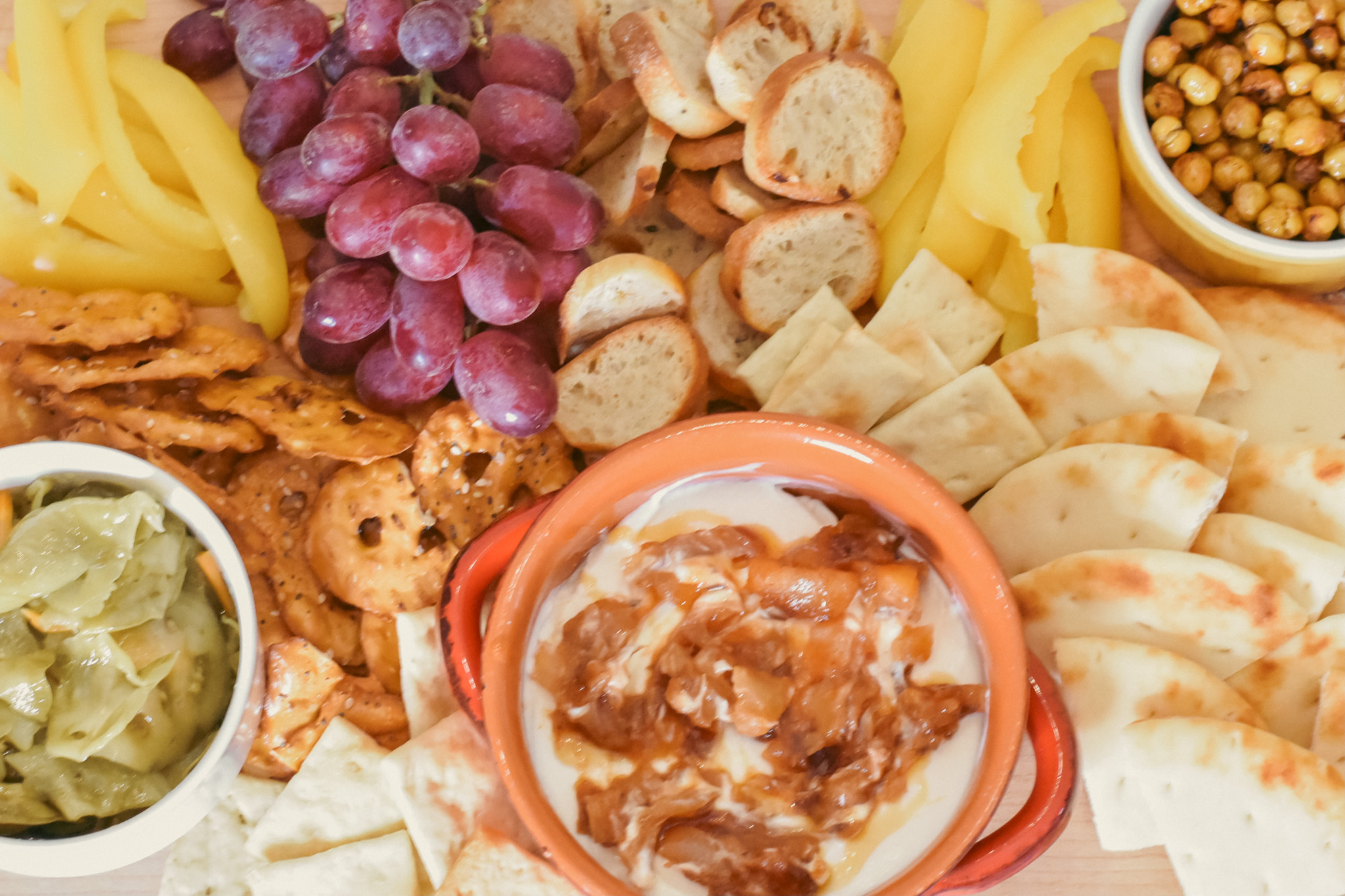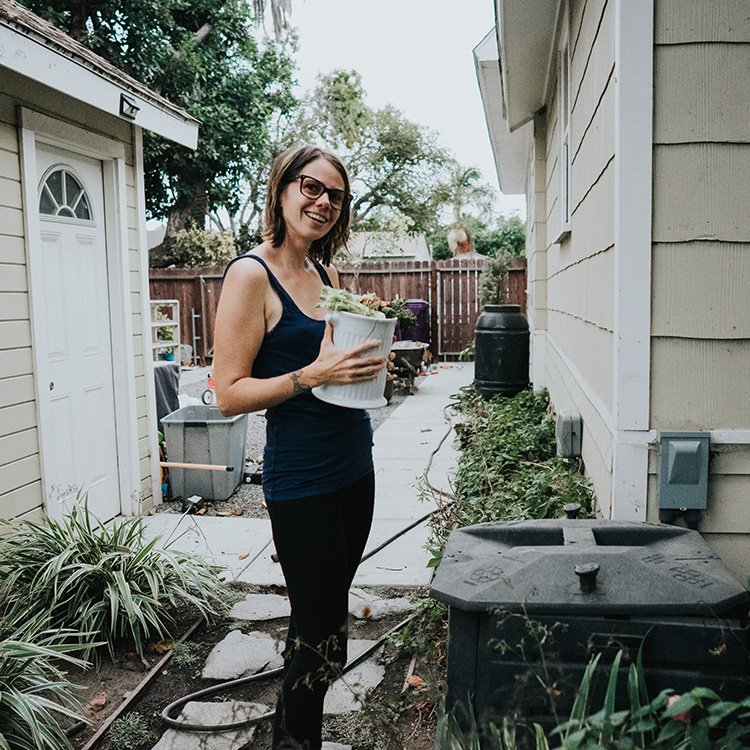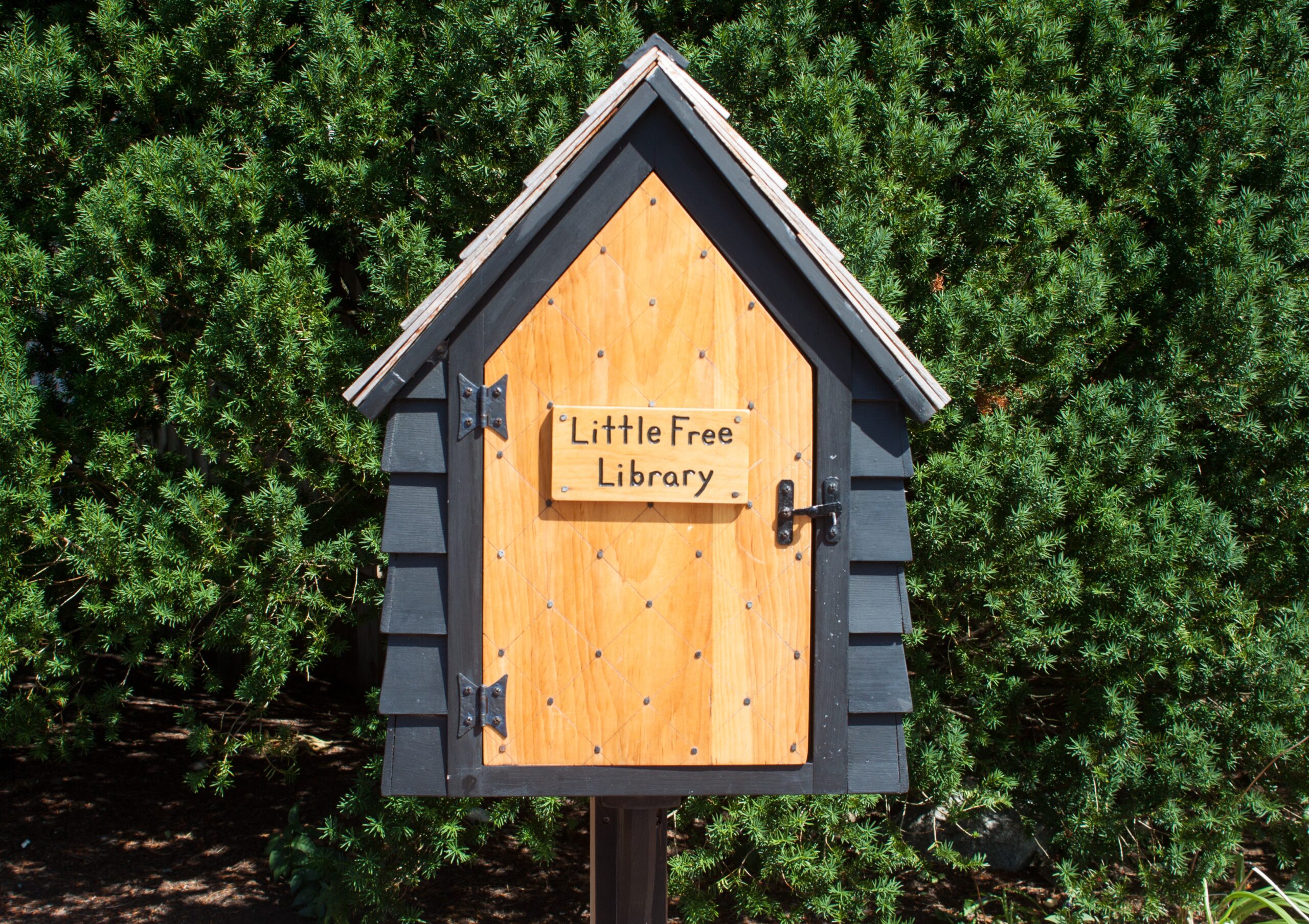How To Compost At Home | Compost Drop Off At Your Local Market
You can compost at home in an apartment in a variety of ways! Elizabeth composts in of the largest cities in the world through a community compost system at a local farmers’ market. Did you know that many cities have organizations that facilitate composting for those who don’t have space for a system or can’t use the finished compost themselves?
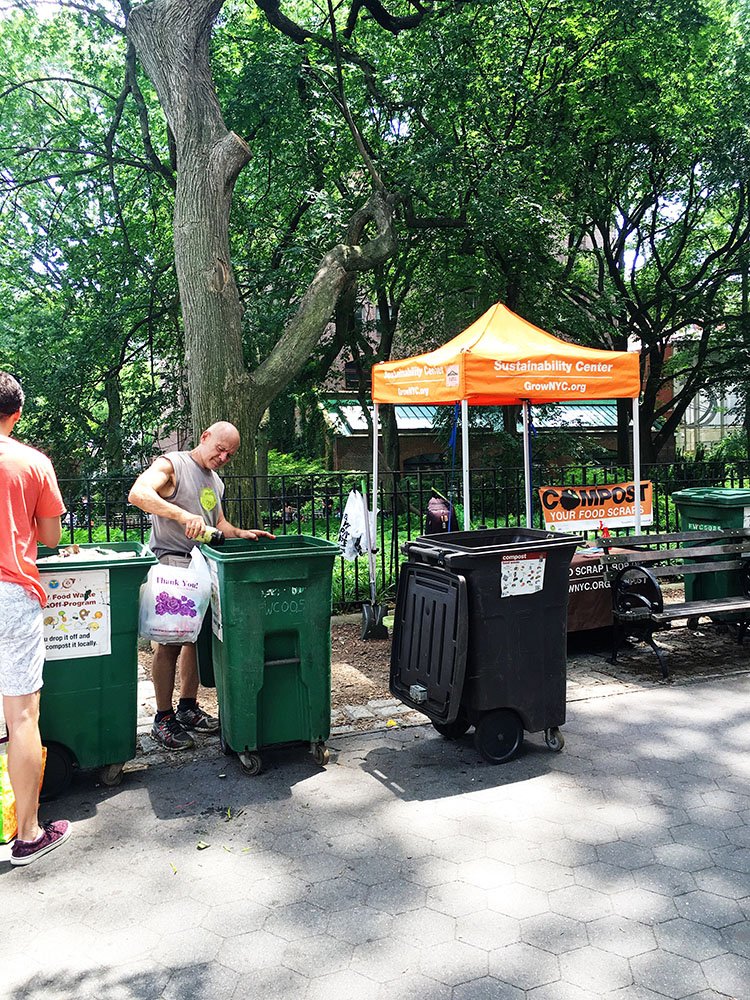
The Compost Chronicles series highlights families in various circumstances who have all found a way to compost at home that works for their lifestyle. Hopefully, you can be inspired to give it a go and help our planet become a little healthier.
Did you know that composting can transform your trash into new life? And that new life, in the form of microbes, fungi, earthworms, and more, provides the foundation for much of all other healthy life on Earth?
Composting is a great way to create healthy soil to support people and our planet. Healthy soil is also a magical carbon sink that absorbs carbon from our atmosphere and helps cool the planet. While dead dirt has few living organisms, a teaspoon of healthy soil has more living organisms in it than the entire population of humans on Planet Earth!
We need everyone to learn how to compost at home and make it a part of everyday life.
Don’t think you can compost? We’ve got a whole set of resources on Everything To Know About How To Compost At Home, including more Compost Chronicles interviews. All of this information about how to compost at home will hopefully prove that just about anyone can make space and find a system to turn their food scraps into nutrient-rich compost to enrich our soil, feed our food cycle, and limit the food waste that ends up in landfills.
If you don’t have a backyard to do your own composting, Elizabeth Stillwell is sharing how she composts in of the largest cities in the world. Did you know that many cities have organizations that facilitate composting for those who don’t have space for a system or can’t use the finished compost themselves? I’ll let her tell you more about it all, but Elizabeth has some great tips and ideas about taking advantage of the programs already in place to be part of the composting community in your area.
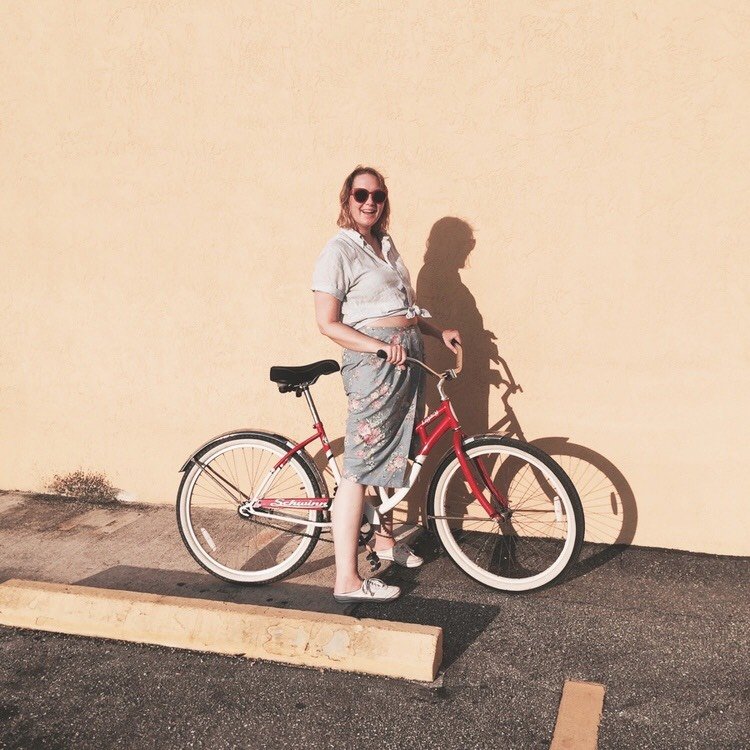
Can you tell us a bit about yourself, where you live, your family, etc.. the Elizabeth 101?
My name is Elizabeth Stilwell and I live on the Upper West Side in NYC with my husband, Nathan. Our apartment is small (350 square feet), but we make good use of the space by hanging things on the wall and keeping it organized. I actually like that it’s a manageable size that discourages clutter and excess stuff!
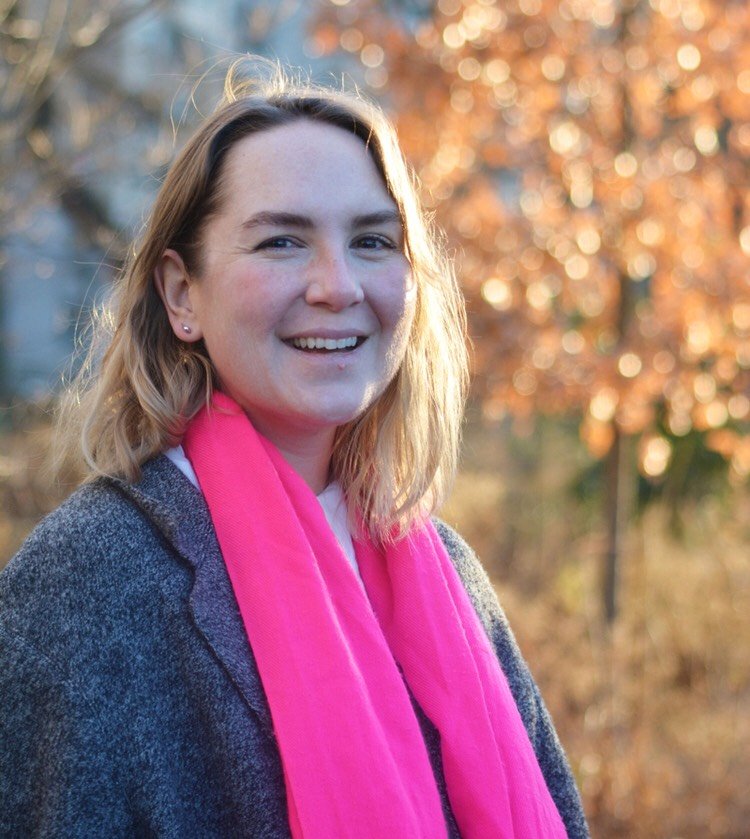
Tell us a little bit about why you decided to start composting?
Once you start getting into sustainability, composting comes up over and over. People with backyards start their own, but us city-dwellers are at a disadvantage there. If your city offers composting, however, it can be quite convenient. There are pilot programs in some parts of NYC for building pick up, but it’s not available to me — yet. Luckily, GrowNYC, the non-profit that runs our greenmarkets, offers municipal composting.
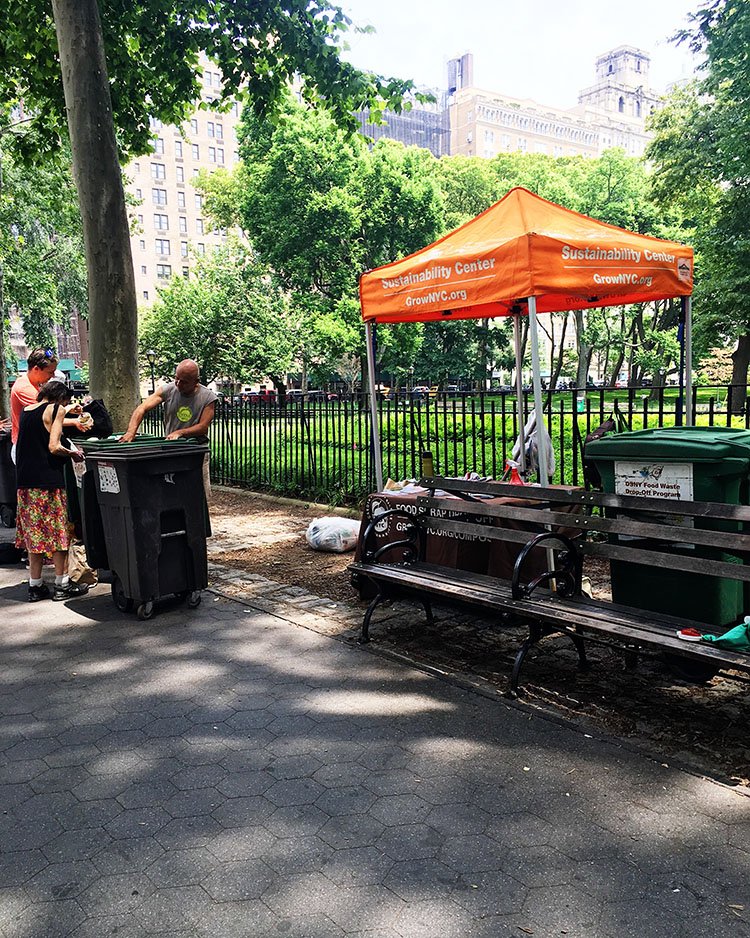
Living in a city, can you share more details about exactly how you execute this?
I have a friend that recently moved to the city and, as I was giving her advice on grocery shopping, I remembered how different it is to shop for a small fridge without a car. My refrigerator is not tiny but definitely isn’t what comes standard in most American homes. Like most New Yorkers, I go to the grocery store at least twice — if not more — times a week to get what I need. I’m lucky enough to live close to many different stores on the Upper West Side of Manhattan, but other people have to endure the inequality of food deserts in addition to other challenges. When I shop, it’s usually just enough for a few days, which has the benefit of cutting down on food waste on the front end. Our house is vegetarian (I’m vegan, but my husband gets eggs from the greenmarket) so almost everything we eat can go into the compost, including the eggshells.
The veggie and fruit scraps and eggshells all go into old plastic zipper bags we keep in the freezer. We fill 1-2 bags per week and on Sundays, we take them to the greenmarket in our neighborhood for drop off. Waiting for us are big trashcans and volunteers, and we just dump it right in. The scraps are taken to one of their compost sites and later used for urban gardening and farming projects.
The scraps usually take up about a quarter of my freezer space but don’t smell. Packaged frozen food has a lot of wrappers and packaging so I try to avoid it anyway. Only when we can’t make the drop-off does it start to get in the way, but it’s definitely worth it to keep it in that space!
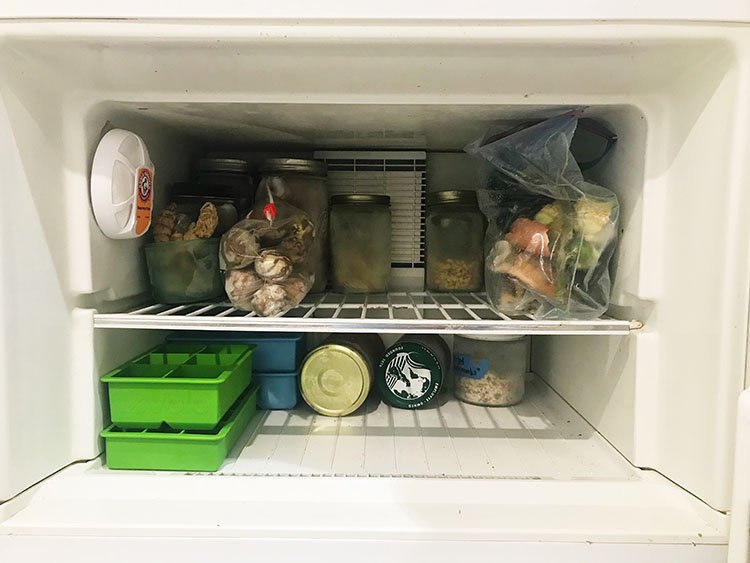
How did you figure out what could be composted and what to do with the food scraps?
GrowNYC has their guidelines here. Most of the items they don’t take are ones I don’t eat, so that makes it easy! They also have volunteers keeping an eye on what people dump in at pick up, just in case. I’ve forgotten a rubber band or two in my day and they are good about catching things like that.
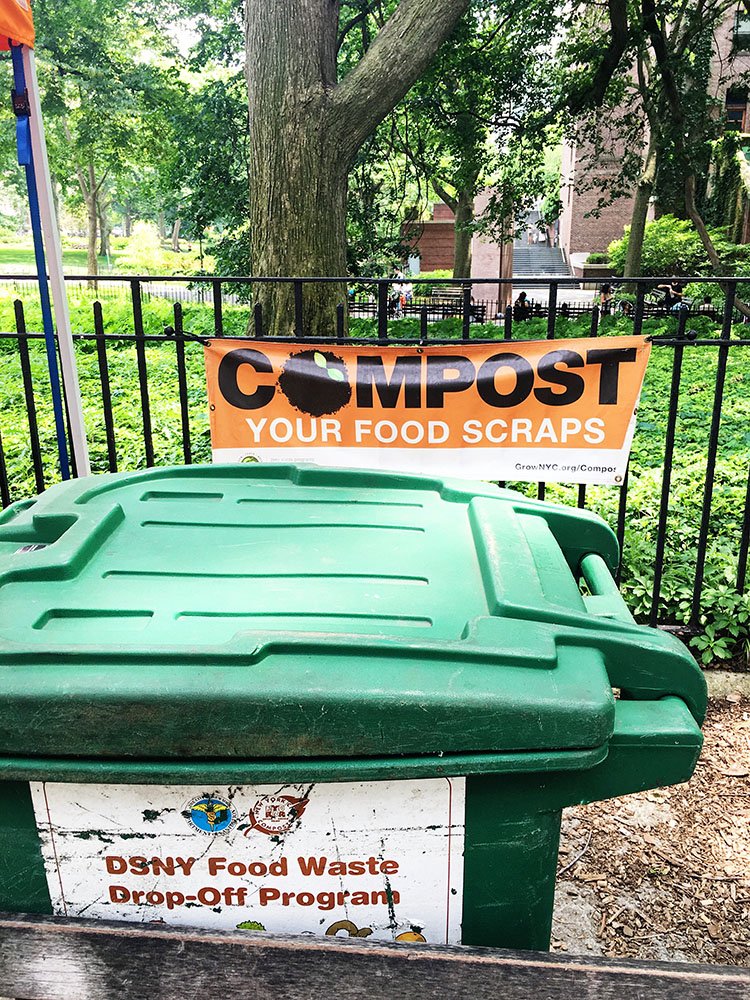
Do you have any special tools, containers, or products that help make composting easier or more accessible for you?
Nope, I just reuse old plastic bags. Some people keep theirs in a bowl in the freezer, but I’d rather not have to transfer it for transport.
How does your family feel about composting? Do they participate?
My husband is definitely on board, and truth be told, he does the Sunday drop off far more often than I do. The good volunteers of GrowNYC are there rain or shine, and every season! We are very lucky.
Have you experienced any benefits from composting, especially ones that might have surprised you?
Living in a small space, one benefit is that the kitchen trash never smells now — and rarely needs to be taken out at all.
Anything else you’d like to share with readers about your composting practices, especially to help beginners gain confidence that they too can compost?
I would say the most difficult part is knowing what to put into the compost, and this differs depending on what kind of composting you do. There’s the kind you do in your backyard — that’s up to you and probably the steepest learning curve. Drop-offs like mine have some guidance from the city or organization facilitating it. Bokashi composting is a whole other animal, but a good choice in certain situations.
Beware of products that brand themselves as “compostable” because they may not be accepted except under certain circumstances. You can begin composting immediately with fruit and veggie waste, ask questions if you are taking it to a drop-off, and go from there! When I first started, I was a little confused on the rules, so I created a simple flowchart to help educate myself; you can download it for yourself here.
Where else can we find you and learn more about what you’re up to?
You can find me editing, writing, and illustrating for Selva Beat, in addition to my freelancing.


